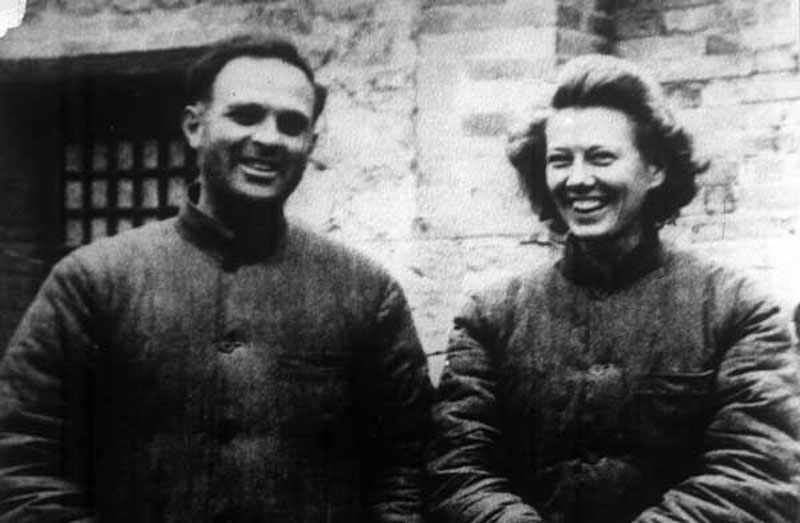This story is part of our June 2020 cover story, a series of articles profiling internationals who have made – or are making – an impact in China. To read more fascinating profiles from this series, click here.
Editor’s note: While it is standard practice to refer to a subject by their family name from the second mention onwards, we will refer to Isabel Crook and her family members by their first names throughout this article due to the number of Crooks mentioned in the story.
Isabel Crook has lived a truly incredible life. Born in Chengdu, Sichuan in December of 1915, Isabel witnessed some of the biggest events of the 20th century through a Chinese lens, from the first civil war after the fall of the Qing Dynasty and the War of Resistance Against Japanese Aggression (Second Sino-Japanese War) to the second civil war leading to the founding of the People’s Republic of China. She also experienced the Cultural Revolution, China’s Reform and Opening-up in the 1980s and the breakup of the Soviet Union.
Isabel’s parents, Homer and Muriel Brown, were Canadian and arrived in China in 1912 as Methodist missionaries. They left in 1942, although their daughter would remain and continues to call the country home to this very day. The 104-year-old has lived 87 years of her life in China, with the remainder spent overseas, including six years in the UK and the duration of her post-secondary education in Canada, where she attained her BA and MA at the University of Toronto.
In the early 1940s, Isabel met committed British communist David Crook and the two were married in 1942. Their life journey together would continue until David’s death in 2000 at the age of 90.

David and Isabel Crook. Image via davidcrook.net
Formally trained as an anthropologist, Isabel is keenly interested in China’s ethnic minority groups, particularly the Yi (previously known as the Lolo) and the Jiarong Tibetan. She is also passionate about rural development.
“Isabel enrolled in a PhD program at London School of Economics while David was studying at School of Oriental and African Studies. Her thesis was to be ‘Rural Reconstruction,’ based on her two-year anthropological research done in Xinglongchang in Bishan county, now part of Chongqing in 1940-1942,” Michael Crook, Isabel’s son, tells That’s via email. “When Isabel learned the Chinese communists were launching a land reform program in 1947, she got permission to change her thesis to be a comparison of rural reform under the KMT and Communist Party of China (CPC), and headed out to the communist-controlled areas to do field work and collect material.”
Her husband joined her on this adventure into CPC-liberated areas and the couple would jointly produce three books on China’s communist rebirth: Ten Mile Inn, Revolution in a Chinese Village, Ten Mile Inn – Mass Movement in a Chinese Village and First Years of Yangyi Commune.
In 1948, on the eve of her return to the UK to finish her PhD, the Foreign Affairs Committee of the CPC asked Isabel and David to stay and teach at the Central Foreign Affairs School (now Beijing Foreign Studies University). There, the couple taught English and other humanities subjects, and Isabel would remain employed there until her retirement in 1979. She then returned to her anthropological studies and wrote two more books.
Despite her parents’ religious affiliation, Crook is not religious and instead took an interest in advancing socialist causes. “Isabel joined the Communist Party of Great Britain (CPGB) in London in 1942, and did union organizing and recruiting for the CPGB,” writes Michael. Within China, Isabel participated in ‘party life’ with members of the CPC from 1947 onwards and in various political movements. She was appointed as an advisor by the Ministry of Education, offering advice on education and social issues, particularly related to rural areas.

Isabel Crook. Image via Michael Crook
Despite the highs, there were lows: During the chaos of the Cultural Revolution, David was wrongly imprisoned for five years for ‘spying,’ and Isabel spent three years in detainment. This experience did not dim their love for China, the Chinese people or the revolution, though, and the Crook family decided to continue living in the PRC despite speculation they may relocate to England.
In a nod to Isabel’s accomplishments and contributions to New China, Chinese President Xi Jinping awarded Isabel the Chinese Medal of Friendship in 2019. The honor sees her join the ranks of other distinguished recipients, including Russian President Vladimir Putin, First Secretary Raúl Modesto Castro Ruz and Princess Maha Chakri Sirindhorn of Thailand.
These days, despite her advanced age, Isabel is still incredibly active, going out multiple times a day despite living on the third floor of a building that does not have an elevator. Unfortunately, due to the COVID-19 outbreak, her regular routines have been negatively impacted.
“Due to the epidemic, the weekly discussion group – supper with foreign friends – has been suspended since January, [this is] something she misses a lot,” Michael tells us.
Considering the trials and tribulations Isabel has tackled during her lifetime, we imagine she is weathering the current global storm with the same determination and adventurous spirit that has kept her in China all these years.
To read more fascinating profiles from this series, click here.
[Cover image via Michael Crook]






















0 User Comments